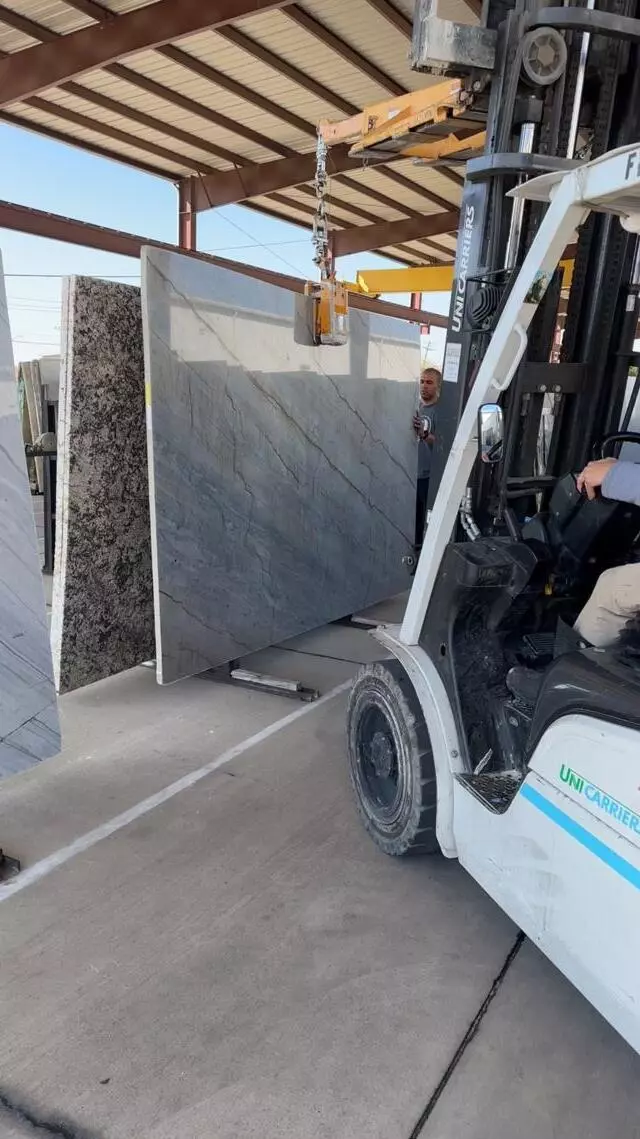The Ultimate Guide to Protecting Your Investment: Quartzite Countertops Sealer
Quartzite has become a highly sought-after material for countertops due to its durability and natural beauty. It brings the aesthetics of marble with the resilience that’s closer to granite, making it an ideal choice for both kitchens and bathrooms. However, to maintain its pristine condition and protect it from stains and etches, sealing quartzite is a crucial step. In this guide, we’ll explore the importance of a sealer for quartzite countertops and how to choose the right one to ensure your surfaces remain stunning for years to come.
Understanding Quartzite and Its Need for Sealing
Before we dive into the specifics of sealers, it’s important to understand what quartzite is. Quartzite is a natural stone that is formed from sandstone and quartz. It is known for its hardness and less porous nature compared to materials like marble. However, it’s not entirely impervious to damage. Liquids, if left on the surface for extended periods, can penetrate the stone, causing stains and reducing its shine.
Sealing quartzite countertops is a preventative measure. A quality sealer will create a protective barrier that repels liquids and prevents them from seeping into the stone. But not all sealers are created equal, and with the various options available on the market, choosing the right one is paramount to the longevity of your countertops.
The Best Types of Sealer for Quartzite Countertops
When it comes to selecting a sealer for quartzite countertops, there are primarily two types: topical sealers and impregnating sealers.
Topical Sealers:
These create a protective film on the surface of the quartzite. They are easier to apply and can add a glossy sheen to the countertop. However, they’re generally not recommended for quartzite as they can alter the natural appearance of the stone and are less durable, requiring more frequent reapplications.
Impregnating Sealers:
These are the most recommended for quartzite countertops. Impregnating sealers penetrate the surface, filling the pores within the stone and forming a barrier just below the surface. This doesn’t change the natural look of the quartzite and provides long-lasting protection.
When choosing an impregnating sealer, look for products that are specifically designed for natural stone and are labeled as suitable for quartzite. They should be non-acidic to avoid damaging the stone, and water-resistant to protect against spills. A good sealer for quartzite will also provide protection against oils, which can be particularly problematic for kitchen countertops.
Application Tips for Quartzite Countertop Sealers
Applying sealer to your quartzite countertops is not overly complicated, but it does require attention to detail to ensure thorough protection. Here are some tips to help you with the application process:
- *Clean the Surface*: Before applying any sealer, the countertop must be free of dust, dirt, and stains. Use a gentle cleaner designed for natural stone and a soft cloth to clean the surface.
- *Apply Sealer Evenly*: Use a low-pressure sprayer, a brush, or a soft cloth to apply the sealer evenly across the surface. Ensure that you cover all areas, including edges and backsplashes.
- *Allow it to Penetrate*: Follow the manufacturer’s instructions on how long you should let the sealer penetrate the stone. Usually, this is around 15-30 minutes.
- *Wipe Off Excess*: After the sealer has had time to penetrate, wipe off any excess with a clean, dry cloth.
- *Cure Time*: Allow the sealer to cure fully. This typically takes 24-72 hours, during which you should avoid using the countertop or exposing it to liquids.
- *Test the Seal*: Once cured, test the effectiveness of the sealer by letting a few drops of water sit on the surface for a few minutes. If it beads up, the sealer is working. If it soaks in, you may need to apply another coat.
Maintaining Your Sealed Quartzite Countertops
Even with a high-quality sealer, regular maintenance is key to keeping your quartzite countertops looking their best. Wipe up spills promptly, use cutting boards to prevent scratches, and avoid placing hot items directly on the surface. Clean the countertops with a pH-neutral cleaner and avoid harsh chemicals that can strip the sealer.
Re-sealing is also a part of routine maintenance. Depending on the quality of the sealer and the amount of use your countertops see, you may need to re-seal every one to two years. Regular testing, as mentioned earlier, can help determine when it’s time to reapply the sealer.
Investing in a high-quality sealer for quartzite countertops and following proper application and maintenance procedures can help ensure that your countertops remain a beautiful and functional part of your home for years to come.
Absolutely, let’s delve deeper into the care and maintenance of sealed quartzite countertops.
Long-term Care Strategies for Sealed Quartzite Countertops
Protecting your quartzite countertops with a sealer is just the first step in a long-term care strategy. Consistent and proper maintenance will ensure that your investment remains as timeless as the day it was installed.
Daily Maintenance:
– *Wipe Surfaces Daily*: Use a soft cloth or sponge with warm water and a mild detergent to wipe down your countertops daily. This will prevent the build-up of residues that can dull your countertops’ finish.
– *Avoid Harsh Cleaners*: Stay away from acidic or abrasive cleaners, including vinegar and lemon juice, as they can etch the stone over time, even if it’s sealed.
Spill Management:
– *Blot Spills Quickly*: Rather than wiping spills, which can spread the liquid, blot them immediately with a paper towel or soft cloth.
– *Use Coasters and Trivets*: Protect your countertops from potential stains and thermal shock by using coasters under all glasses, particularly those containing alcohol or citrus juices, and trivets under hot dishes.
Periodic Maintenance:
– *Polishing*: Some homeowners like to maintain the luster of their quartzite by periodically using a polish formulated for natural stone. This can enhance the stone’s natural beauty and add an extra layer of protection.
– *Professional Inspection*: Periodically, it might be wise to have a professional inspect your countertops to ensure that there are no areas that need repair or re-sealing.
When to Reapply Sealer to Quartzite Countertops
Even with meticulous care, your countertops will eventually need to be re-sealed. The frequency of re-sealing depends on the stone’s porosity and the sealer’s quality, as well as the level of use and care the countertop receives. Here are some signs that it’s time to reapply:
– *Water Absorption*: If water no longer beads up on the surface but instead soaks in, it’s time to reapply the sealer.
– *Dulling Surface*: A countertop losing its shine could be a sign that the sealer is wearing off.
– *Visible Stains*: If you start to notice stains that weren’t there before, this could indicate that the sealer is no longer offering protection.
Choosing a Professional for Sealing Quartzite Countertops
While many homeowners feel comfortable sealing their quartzite countertops themselves, some may prefer to hire a professional. A professional stone sealer will have access to high-grade sealers that may not be available on the retail market and will have the expertise to apply them correctly. They can also provide valuable advice on the specific needs of your quartzite and the best products to use.
What to Look For in a Professional:
– *Experience with Quartzite*: Ensure that the professional has specific experience with sealing quartzite, as it has different needs than other stones like granite or marble.
– *References and Portfolio*: Ask for references and photos of previous work to ensure that they provide quality service.
– *Detailed Quotes*: A professional should provide a detailed quote outlining the costs, the process they will use, and the expected outcome.
We, at Allied Gallery, would love to provide you with this quote!
In summary, sealing quartzite countertops is an essential step in preserving their beauty and functionality. With the right sealer, application process, and ongoing care, your quartzite surfaces can remain as stunning as they were on the day of installation. Remember to re-seal as needed, and don’t hesitate to consult or hire a professional if you’re unsure about any aspect of the process. Your quartzite countertops are a long-term investment, and with proper care, they’ll be a source of pride in your home for many years.

